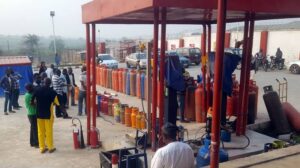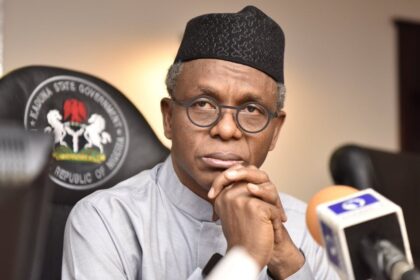Nigeria’s liquefied petroleum gas (LPG) market is witnessing a rare price relief as the average retail cost of cooking gas has fallen according to retailers and industry sources.
The decline, after months of steep increases that pushed prices above ₦1,800/kg in some areas, has temporarily relieved millions of households struggling with high living costs and volatile energy prices.


The average cooking gas price in Nigeria is ₦1,200/Per KG gas cylinders respectively.
Retailers in Lagos, Abuja, and Port Harcourt confirmed that the latest price movement began in early October and has since spread nationwide, driven by a combination of improved supply from local terminals, a slight appreciation of the naira, and lower international LPG prices.
This data product focuses on the price trajectory of the LPG used for cooking in Nigeria.
For many consumers, the decline marks a welcome reprieve in a country where energy costs have surged across all fronts, from electricity tariffs to petrol and diesel prices—since the removal of fuel subsidies and the naira’s depreciation last year. LPG, widely seen as a cleaner and more efficient cooking alternative to firewood, kerosene, and charcoal, had become increasingly unaffordable for low- and middle-income households.
Data from the National Bureau of Statistics (NBS) showed that the average cost of refilling a 12.5-kilogram cylinder rose from ₦9,000 in October 2023 to about ₦16,000 in August 2025, representing a 78% increase in less than two years. The recent price decline, analysts say, could help reverse that trend if it is sustained through the final quarter of the year.
International LPG prices, often benchmarked against Mont Belvieu in the United States, fell by about 10% in September amid weaker global demand and higher output from major producers. The effect trickled down to Nigeria’s importers, whose landing costs are heavily influenced by foreign exchange rates and freight charges.




